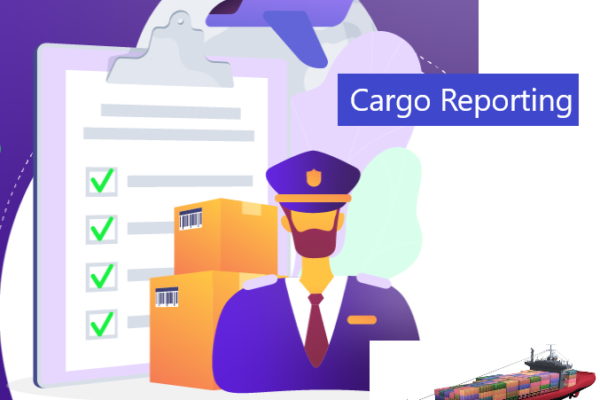There are strict rules for the reporting of import shipments to the Australian Border Force (ABF) that affect both freight forwarders and their clients. While the customs broker lodges the reports, it is the importer who is likely to foot the storage bill for late reports. To minimise associated costs incurred for delayed release of cargo, it is essential that importers supply timely and accurate import data, permits and documentation to their brokers in order to meet statutory requirements.
The ABF assesses all incoming sea cargo before it can be released into the Australian community and they have issued Australian Customs Notice No. 2023/01, titled, Sea Cargo Reporting Requirements and Inspection Arrangements (Replacing ACN 2022/38).
It replaces all other previous notices on the same subject matter, and is intended to clarify mandatory reporting timeframes and update the free storage arrangements for Full Container Loads (FCLs) of containerised cargo selected to be subject to ABF compliance activity.
Mandatory reporting timeframes
Prior to the arrival of cargo in Australia, it is a requirement for the intended importation of the cargo to Australia to be reported electronically to the ABF This is known as a sea
cargo report (SCR).
For all sea journeys to Australia that take 48 hours or more, the SCR must be lodged with the ABF at least 48 hours before the estimated time of arrival at the first port of arrival in Australia. Failure to meet these reporting requirements may result in an infringement notice being issued to the importer and/or owner by the ABF under the Infringement Notice Scheme, or possible commencement of legal enforcement proceedings. There are special arrangements in place for voyages that take less then 48 hours.
Selection of cargo for further inspection or examination
Compliance with the timeframes referred to above will assist the ABF in completing its intelligence informed and risk-based approach to advising whether or not cargo:
a) is to be cleared on arrival in Australia; or
b) will be held on arrival for further inspection or examination. This may involve physical examination either at the terminal or at a Cargo Examination Facility (CEF).
Late Targeting by the ABF
On occasions – and no matter whether statutory reporting requirements have been met – the ABF may change the status of a container after it has received a “clear” status.
Please note, in these circumstances ABF will not compensate the importer for storage charges or container detention charges.
Storage
Container Terminal Operators (CTOs) generally provide importers with three days of free storage for containerised cargo at a terminal upon initial arrival. At any time, the ABF may remove selected containers from a terminal to be inspected and/or examined at a CEF.
If a container returns to the terminal from a CEF with less than 24 hours free storage remaining, the importer will generally be entitled to an additional 24 hours free storage on that container upon return to the terminal, to allow sufficient time for collection. This applies only to FCL containerised cargo and excludes break bulk cargo.
Containers that are the subject of a late report and/or a late hold will not be eligible for any additional free storage. The ABF says that any free days of storage provided by CTOs “are not service level standards to which the ABF adheres.” ABF clearance is likely to take longer than three days if the mandatory reporting timeframes have not been met.
The ABF has existing arrangements in place with stevedores and logistics providers to facilitate the efficient inspection and examination of FCL’s of containerised cargo.
Costs and Charges
Importers and exporters must make provisions in their reporting and logistics arrangements for the possibility of their cargo being selected by the ABF for non-intrusive inspection (e.g. x-ray), or physical examination. The ABF stresses that it is not responsible for any costs incurred by importers in relation to held FCLs of containerised cargo, including but not limited to storage, demurrage and detention fees.
Insurance of cargo is a matter for importers and/or owners. We recommend you consider covering all your consignments by marine insurance.
For advice on any free storage arrangements that your stevedore applies, or any other import concerns, please contact us.
As licensed Customs Brokers and International Freight Forwarders, Colless Young offers you professional advice on all your international import and export shipping requirements. We provide a complete range of logistics services, both air and sea cargo, including warehousing and trucking, at all major Australian ports and airports.

